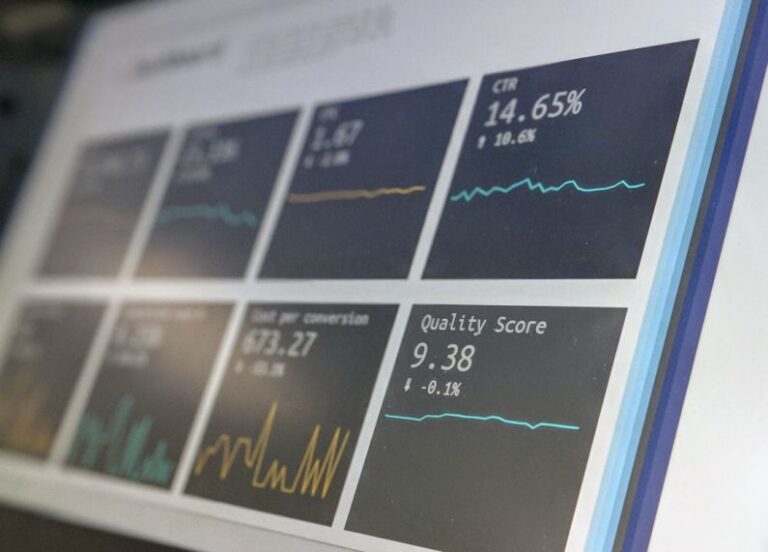Adopting Technology for Better Transportation Management
In today’s fast-paced world, efficient transportation management is crucial for businesses to stay competitive and meet the demands of their customers. Adopting technology has become essential in streamlining transportation processes, optimizing routes, reducing costs, and enhancing overall operational efficiency. By leveraging the latest technological advancements, companies can revolutionize their transportation management strategies to drive growth and profitability.
Harnessing Data Analytics for Real-Time Insights
One of the key benefits of adopting technology in transportation management is the ability to harness data analytics for real-time insights. By integrating transportation management systems with advanced analytics tools, companies can collect and analyze vast amounts of data to gain actionable insights into their operations. Real-time visibility into fleet movements, delivery status, and route performance allows businesses to make informed decisions quickly, leading to improved efficiency and customer satisfaction.
Optimizing Route Planning with GPS Technology
GPS technology has transformed the way companies plan and manage transportation routes. By using GPS-enabled devices and route optimization software, businesses can create more efficient routes that minimize mileage, reduce fuel consumption, and improve delivery times. Real-time tracking capabilities also enable companies to monitor driver behavior, vehicle performance, and traffic conditions, allowing for adjustments to be made on the fly to ensure timely deliveries and optimal route efficiency.
Enhancing Communication with Mobile Apps
Mobile apps have revolutionized communication in the transportation industry, enabling seamless collaboration between drivers, dispatchers, and customers. With the use of mobile apps, drivers can receive real-time updates on delivery schedules, route changes, and customer requests, improving overall communication and coordination. Dispatchers can also track driver locations, monitor delivery progress, and address any issues that may arise during transit, leading to smoother operations and enhanced customer service.
Implementing IoT for Asset Tracking and Monitoring
The Internet of Things (IoT) has opened up new possibilities for asset tracking and monitoring in transportation management. By equipping vehicles, containers, and packages with IoT sensors, companies can track their whereabouts in real-time, monitor environmental conditions, and ensure the security of their assets. IoT technology also enables predictive maintenance of vehicles and equipment, reducing downtime and extending the lifespan of assets, ultimately leading to cost savings and improved operational efficiency.
Automating Processes with AI and Machine Learning
Artificial intelligence (AI) and machine learning have the potential to revolutionize transportation management by automating processes and optimizing decision-making. AI-powered algorithms can analyze vast amounts of data to predict demand, optimize inventory levels, and suggest the most efficient routes for deliveries. Machine learning algorithms can also learn from past transportation patterns to improve forecasting accuracy, reduce lead times, and enhance overall supply chain efficiency.
Integrating Blockchain for Secure Transactions
Blockchain technology offers a secure and transparent way to conduct transactions in the transportation industry. By leveraging blockchain technology, companies can create tamper-proof records of transactions, track the provenance of goods, and ensure the authenticity of shipments. Smart contracts powered by blockchain can also automate payment processes, reduce disputes, and streamline transactions between multiple parties, leading to increased trust and efficiency in transportation operations.
Driving Sustainability with Green Technologies
In an era of increasing environmental awareness, adopting green technologies in transportation management has become a priority for many companies. Electric vehicles, hybrid engines, and alternative fuels offer sustainable alternatives to traditional transportation methods, reducing carbon emissions, lowering fuel costs, and minimizing environmental impact. By embracing green technologies, companies can demonstrate their commitment to sustainability, attract environmentally conscious customers, and contribute to a greener future for the transportation industry.
Embracing Innovation for Future Success
As the transportation industry continues to evolve, companies must embrace innovation and adopt technology-driven solutions to stay ahead of the competition. By harnessing the power of data analytics, GPS technology, mobile apps, IoT devices, AI algorithms, blockchain technology, and green technologies, businesses can revolutionize their transportation management strategies to drive growth, improve efficiency, and enhance customer satisfaction. Embracing innovation is key to ensuring future success in an increasingly dynamic and competitive transportation landscape.






